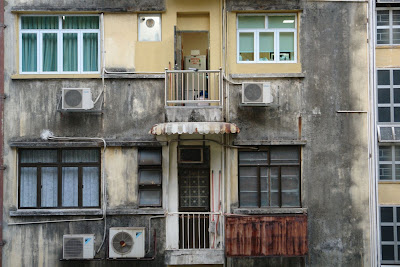In the years between the end of World War II and the beginning of the Korean conflict, good jobs in England were difficult to find. The country had survived the war, but it was still in its austerity phase under the Labor government, and its economy was a long way from full recovery. What could an able young officer, recently demobilized from the army, hope to find in the way of a promising career in the land of his birth.
India had by then won independence, and most career opportunities for young Englishmen in the subcontinent had evaporated, by and large. But there were still British Crown Colonies elsewhere in the once-proud Empire whose sun was just beginning to set, and none beckoned as brightly as Hong Kong.
A penniless man of decent education and clean habits could find his way there easily enough. The economic miracle that would turn Hong Kong from a colonial backwater into a powerhouse of manufacturing and finance was just about to be jumpstarted with the communist takeover of China, and the profiteering that accompanied the Korean War.
Our man came to Hong Kong with little more than good looks, a fine soldierly bearing, the right sort of accent, and an old cardboard suitcase. In short order he found employment with the newly-reconstituted colonial government, and working hard while befriending the right people, he soon rose to become an important personage in the administration, with an army of local employees reporting to him, a comfortable new apartment with servants in attendance, and even a chauffeured car to take him to work.
He joined the right clubs, worked the right connections, and to his credit, he took pains to master the difficult Cantonese dialect. He engaged in brief liaisons with his superiors’ wives as well as local women, and when things got a bit dicey now and then, took off on three or four months’ home leave to England.
The years went by. He was in his forties. It was time for him to settle down. Back in England, he proposed to the sister of a brother officer. They were married just weeks before he was reassigned to Hong Kong in a higher government position. While dancing with his new wife aboard the P. & O. ship sailing down the Red Sea, he met an elderly Scottish gentleman who happened to own rather choice pieces of Hong Kong property, and much more besides. He was a taipan. The man offered him a directorship in one of his companies. The Scot avowed that, as a good judge of men, he saw in our man the sort of fellow he needed to help advance his business interests in the colony.
Our man pondered the offer for the several days it took to cross the Indian Ocean, and by the time the ship reached Singapore, he had made up his mind. He took up the Scot’s offer, on the understanding that his benefactor would clear matters up with his current employers. In the end, all went smoothly, for that was how, in those times, taipans and colonial administrations dealt with one another.
Business boomed in Hong Kong. Our man’s knowledge of Chinese customs and language made him very much sought after as an expert. His wife learned the art of becoming the perfect Hong Kong hostess, and became much admired for her discernment and taste in things oriental. He was appointed to this council and that board, she to this committee and that charity. They had attained the uppermost reaches of colonial Hong Kong society.
Over the next decade, they had two children, a boy and a girl. Both were born back home in England, for it would not have done to have their birth certificates show Hong Kong as their birthplace. There would be home leave, boarding school, nannies, traveling by sea and later by air, extended business trips and separations, and then Nixon would visit China, and the whole thing would be, as the Americans called it, a whole new ballgame.
But for our man, now in his early fifties, life had become somewhat – how would he have put it? – humdrum, yes, decidedly humdrum. He had everything a man could want – wealth, recognition, a life of great comfort, even of luxury. His wife, never a beauty, had her own life, with her charities, her circle of friends, her bridge games.
At a Chinese New Year’s banquet, our man fell in love. She was a Chinese actress. He, for all his worldliness, had never known any human being of such exquisite loveliness. He was besotted. He fell utterly, completely, irresponsibly, in love.
His decline began from that moment. In time, there came a messy divorce, and his wife returned to England, taking the children and most of his assets back with her. The children wanted no further contact. He was left with his job, which meanwhile had suffered terribly from his neglect. His company went from one financial crisis to another, and, as soon as his old benefactor died, the new board kicked him out.
After a year or so, the actress parted company with him, having found a new, younger leading man. What few friends he had no longer greeted him at the club, and when his bar bill fell monstrously in arrears, his membership there ended.
Jobless, an outcast, our man went over to live in neighboring Macau, in a rooming house in a poor section of the city, above a noodle shop. A small government pension enabled him to survive.
On fine days he might be seen riding in one of these trishaws, or sitting with his watercolor-box and sketchbook on the seawall of the Praia Grande, making pretty pictures a long way from home.
 Hope you liked the story.
Hope you liked the story.














































